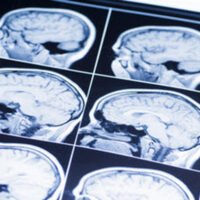 A brain injury is something that can happen at any time and affect a person’s life in a dramatic way. Most brain injuries occur during falls, car accidents and sports injuries. Sometimes getting hit by an object or getting shot in the head can also cause brain injuries.
A brain injury is something that can happen at any time and affect a person’s life in a dramatic way. Most brain injuries occur during falls, car accidents and sports injuries. Sometimes getting hit by an object or getting shot in the head can also cause brain injuries.
While brain injuries are classified as mild, moderate and severe, a mild brain injury can still be a serious matter. It may not be life-threatening, but it can still cause long-term damage to parts of the body.
A brain injury can disrupt brain function. Direct effects include loss of consciousness, memory problems, learning difficulties, lack of coordination, hearing and vision issues, and speech problems. A brain injury can also increase the risk of developing Alzheimer’s disease, dementia or some other cognitive disorder.
Brain Injury Symptoms
Depending on how severe the brain injury is, a host of symptoms can occur. Cognitive issues are common and can include confusion, problems concentrating, memory problems, difficulty thinking or understanding and the inability to recognize once-familiar items or people.
People with brain injuries can also develop behavioral problems such as aggression, repeating words and actions, and abnormal crying or laughing. Mood problems such as anxiety, depression, anger, and apathy can also occur.
The body can suffer significant damage due to brain injury. A person can feel dizzy or fatigued. The pupils of the eyes can also be affected. Muscles may feel stiff or unstable. A person may experience slurred speech and other difficulties. Blurred vision and sensitivity to light can also occur. A person can also experience headaches, nerve injuries, seizures, nausea, vomiting and ringing in the ears.
Brain Injury Treatment
Treatment for a brain injury can vary, depending on the severity. Most mild brain injuries can heal with rest and medications. A doctor may prescribe pain relievers, stimulants, muscle relaxants, antidepressants, anti-anxiety medications and anticonvulsants.
A person should not focus or concentrate too hard during this time. Computer activities can tax the brain, making recovery difficult. Alcohol and drugs should be avoided, as they can prolong recovery. Those who have suffered a concussion during sports should avoid these activities during the recovery process.
Rehabilitation and other therapies can help victims regain movement and relearn basic skills, such as getting dressed, cooking and self-care. Therapy may last the rest of a person’s life, depending on the severity.
In some cases, surgery may be required. This may be done to remove blood clots, repair skull fractures and relieve pressure in the skull.
Harvey L. Walner & Associates, LTD has been winning cases like these for over 50 years!
There is no such thing as a mild brain injury. Even a mild injury can have long-term consequences. Such an injury can also be quite costly. Be sure to get the compensation you need.
If you or a loved one has suffered a brain injury, it’s important that you quickly get back on the road to recovery. The Chicago brain injury lawyers at Harvey L. Walner & Associates, LTD can help. Schedule a free consultation today. Call (312) 313-2888 or fill out the online request form.


 Skip to content
Skip to content







